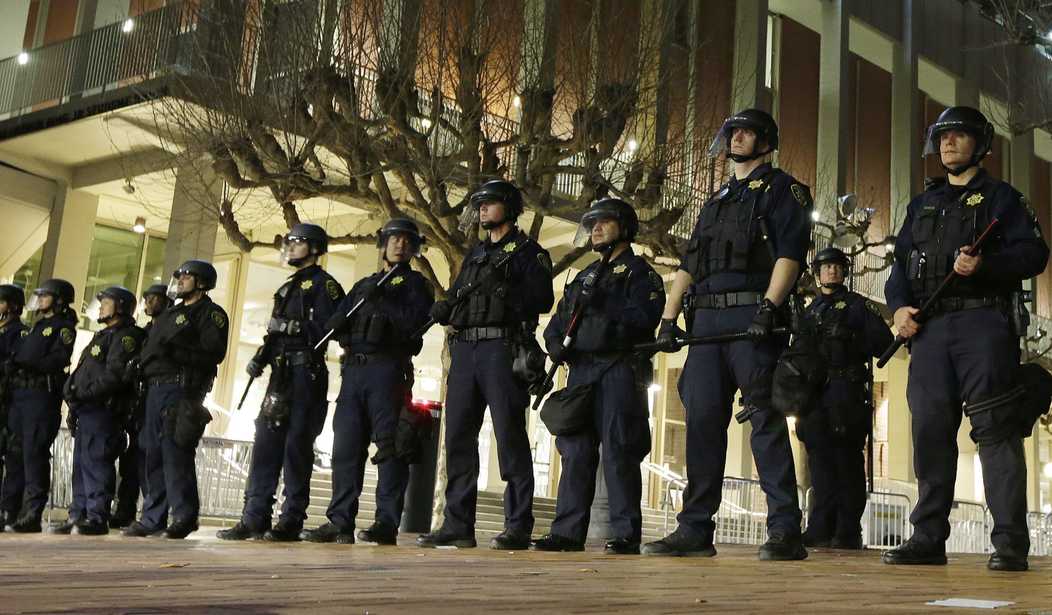With the exception of groups like Antifa, few are thrilled about violent demonstrations on college campuses. There’s little good that comes from rioting, after all, and who pays for the cleanup of the aftermath? The taxpayers.
The NY Daily News ran an op-ed where a professor offers up his thoughts on how to address this problem, and it doesn’t actually include banning controversial personalities from college campuses.
A new school year beckons, and while college students are wrapping up summer jobs and picking courses, university administrators are thinking about violent demonstrations and how to avoid them. Last year saw disturbances or threats at University of California – Berkeley, Evergreen State, Middlebury and others. In each case, students were upset because someone who held views they deemed objectionable (Ann Coulter, for example, or Charles Murray) had been invited to speak on campus.
University administrators feel stuck between a rock and a hard place. They can protect free speech and risk the spectacle of a campus melee, or knuckle under to the demands of protesters, cancel the speech, and use “campus safety” as camouflage.
But there is another choice. Speakers are typically invited by student groups, but these invitations require university approval. Administrators should not approve applications to invite a controversial speaker to deliver an uninterrupted lecture. They should approve invitations for a controversial speaker to debate an opponent.
On the surface, this sounds grand. After all, a debate negates the SJW arguments against speakers like Milo Yiannapolous and Ann Coulter as their supposedly harmful ideas can be combated on the spot.
However, it’s not that simple.
Would a leftist administration recognize progressive darling Linda Sarsour as controversial? Would she, a proponent of Sharia law who has actually claimed the same rules that force women into burkas and makes it almost impossible for a woman not to be blamed for rape would be great for feminism, be required to be met in debate versus being able to simply speak?
It’s important to remember that one person’s “controversial” is someone else’s “rabble-rouser.”
As a result, it will still create free speech issues if one side’s speakers aren’t considered controversial, but the other’s is. It’s not rocket science to see that, nor to understand that human beings are fallible. They don’t always see their own biases, and thus don’t recognize the need to adjust for those biases.
And that says nothing of those who know their biases and just don’t care.
For something like this proposal to work, it would need to be dealt with evenly. There would need to be a hard and objective rule about who can speak and who must take part in a debate and that would be a nightmare. The only objective way to be fair would be to require all speakers who meet certain objective criteria, like being the author of a political book or employed as a political opinion writer, to be required to only take part in debates.
Which, of course, introduces new problems.
After all, a debate isn’t always the best way to communicate ideas. Further, debate formats aren’t appealing to a number of people for a number of reasons, which means audiences will be limited to those who want to watch a live-action version of what they see in their Facebook and Twitter feeds daily.
Professor Willingham, who wrote the piece for the Daily News deserves praise for trying to find a solution that doesn’t explicitly call for stifling free speech, but unfortunately, his plan isn’t likely to work out much better than what we currently have.









Join the conversation as a VIP Member